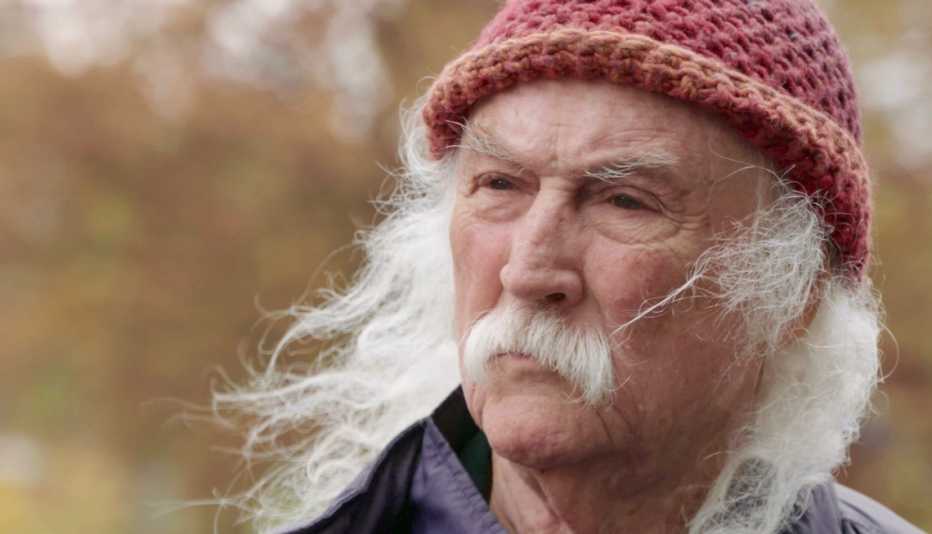AARP Hearing Center


He's a diabetic with eight stents in his heart. He's had hepatitis C, a liver transplant and three heart attacks. How does folk-rock legend David Crosby carry on?
"I'm an insanely lucky human being,” says Crosby, the subject of a new documentary that presents an unvarnished portrait of the musician and his painful history with drugs, women and his famous bandmates.
"I've got a little bit of life left, maybe two weeks, maybe 10 years,” Crosby tells AARP. “What do I do with it? The only thing I can do is music. It's the only contribution I can make and the only way I can make anything better."
In David Crosby: Remember My Name, directed by A.J. Eaton and coproduced by filmmaker and rock journalist Cameron Crowe, the singer confronts his mortality and the wake of ruin left by years of drug abuse and callous behavior. The 77-year-old Crosby, whose long hair and Yosemite Sam moustache have turned silvery white, remains as irascible and blunt as ever. But sobriety and self-awareness have lowered his boiling point, and the blame and abuse he serves up now are directed at himself.
"I hurt a lot of girls, I hurt a lot of people,” Crosby says in the film, which exposes his deep regret about years wasted “being smashed."
The 92-minute Remember My Name, which premieres in New York and Los Angeles on July 19 and expands to theaters nationwide in later weeks, follows Crosby from the pastoral home he shares with his wife, Jan Dance, in California's Santa Ynez Valley to gigs on the road with a band of young players to old Los Angeles haunts from his glory days.
Crosby joined the Byrds in 1964. He formed Crosby, Stills & Nash with Stephen Stills and Graham Nash in 1968, and they were soon joined by Neil Young.
"I let those guys down terribly when I became a junkie,” Crosby tells Crowe, who coaxes a steady stream of startling confessions from his subject.
"My dad never told me he loved me,” Crosby blurts at one point.
He assesses his failed romance with Joni Mitchell and details the trauma he suffered after girlfriend Christine Hinton died at 21 in a car crash, a low period that drove him to hard drugs.
"A friend of mine gave me a shot of heroin,” Crosby relates in the film. “Feels great, only the first time. After that, you're just trying to catch it. And you never get back there. Ever."
Crosby hit bottom in 1982, when he spent nine months in a Texas state prison for drugs and weapons convictions. His drug use continued. In Remember My Name, Nash and singer/songwriter Jackson Browne recall futile efforts at interventions.



































































More From AARP
Hepatitis C Testing Numbers Shockingly Low
Boomers are most at risk for this silent killer6 Superfoods for Diabetes
How these superstars will help you keep the disease in check — and tasty ways to work them into your diet